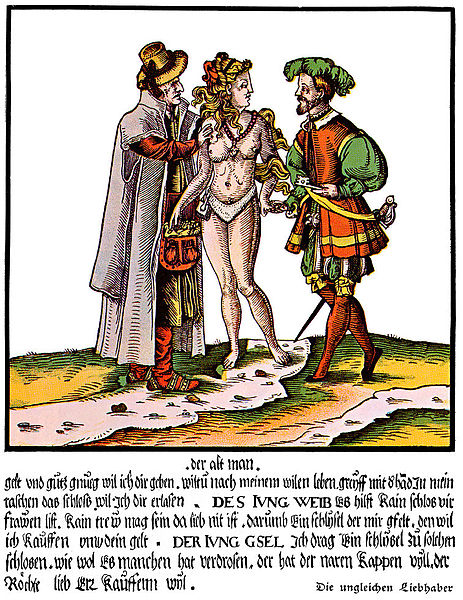… in the back of my mind always ran the great anti-perfectionist utterance of Sir John Falstaff, Shakespeare’s indelible comic character, in Part 1 of Henry IV: “Banish plump Jack, and banish all the world.” A world of perfect sense and good behavior would be well-nigh intolerable: we need Falstaffs, even if we are not Falstaffian ourselves.
If we were to describe a man as deceitful, drunken, cowardly, dishonest, boastful, unscrupulous, gluttonous, vainglorious, lazy, avaricious, and selfish, we should hardly leave room in him for good qualities. No one would take it as a compliment to be described in this way, and we would avoid a person described in such a fashion. Falstaff was all those things, but probably no character in all literature is better loved. Only Don Quixote can compete; and our love of Falstaff is not despite his roguery but because of it. Certainly we would rather spend an evening in his company than with the totally upright Lord Chief Justice of Part 2 of Henry IV. A world of such rectitude, in which everyone had the justice’s probity, would be better, no doubt: but it would not be much fun.
But there is everything in the fat old knight to repel us also: he is almost certainly dirty, and, as a doctor, I would not have looked forward to performing a physical examination on him. He is so fat that the slightest physical effort causes him to exude greasy sweat. As Prince Hal says, he “lards the lean earth as he walks along.” To enjoy Falstaff, you have to be in a tavern; but the world, for most people, cannot be a giant tavern, and outside that setting, Falstaff is distinctly less amusing.
[…]
When Falstaff toward the end of Part 2 of Henry IV learns from Pistol that the old king is dead and that Prince Hal has succeeded him, he immediately sees his opportunity for the unmerited advancement not only of himself but of his cronies. He knows the worthlessness of the rural magistrate, Robert Shallow, and of the ensign, Pistol, only too well; yet he says: “Master Robert Shallow, choose what office thou wilt in the land, ’tis thine. Pistol, I will double charge thee with dignities.” He gives not a moment’s thought—he is temperamentally incapable of doing so—to the consequences of treating public office as a means only of living perpetually at other people’s expense.
Again, when given the task of raising foot soldiers, Falstaff has no compunction in selling exemptions from service and appropriating to himself the money for arms and equipment, leaving his soldiers ill prepared for the battle and with, as he says, “not a shirt and a half” between them: “I have led my ragamuffins where they are peppered [with shot]. There’s not three of my hundred and fifty left alive.” Falstaff sheds not even a crocodile tear for his lost men; their fate simply does not interest him, once they have served his turn and he has made his profit from having recruited them. Even Doctor Johnson is too indulgent when he says: “It must be observed that he is stained with no enormous or sanguinary crimes, so that his licentiousness is not so offensive but that it may be borne for his mirth.” True, he is not sanguinary as a sadist is sanguinary; but depriving 150 men of the means to fight before a battle that ends in their deaths is no mere peccadillo, either.
Why, then, do we forgive and even still love him? If he had been thin, we might have been much less accommodating of his undoubted vices (Hazlitt, in his essay on Falstaff, emphasized the importance of his fatness). At a time when to be a “stuffed cloak-bag of guts,” as Prince Hal calls him, was unusual and most men were, of necessity, thin, Falstaff’s immense size was a metonym for jollity and good cheer — as fatness still is with Santa Claus. It would not have made sense for Julius Caesar, after noting that “Yon Cassius has a lean and hungry look,” to say that such men are well contented. And had Falstaff been slender, he would not have been what Johnson called him, “the prince of perpetual gaiety.”
Falstaff appeals to us because he holds up a distorting mirror to our weaknesses and makes us laugh at them. Falstaff’s dream is that of half of humanity: of luxurious ease and continual pleasure, untroubled by the necessity to work or to do those things that he would rather not do (Falstaff will do anything for money except work for it). There is luxury in time as well as in material possessions, and no figure lives in greater temporal luxury than Falstaff, to whom the concept of punctuality or a timetable would be anathema. Former Italian prime minister Silvio Berlusconi was — or rather, appeared to be — a kind of Falstaff figure, admired by many, though eventually detested by even more, who seemed to lead an effortless life of merrymaking and who was unafraid of the world’s censure. He was therefore able to say heartless but witty things that the rest of us, cowed by the moral disapproval of others, laughed at under our breaths but would not dare to say ourselves.
Theodore Dalrymple, “Why We Love Falstaff: There is some of Shakespeare’s incorrigible rogue in all of us”, City Journal, 2015-08-16.




